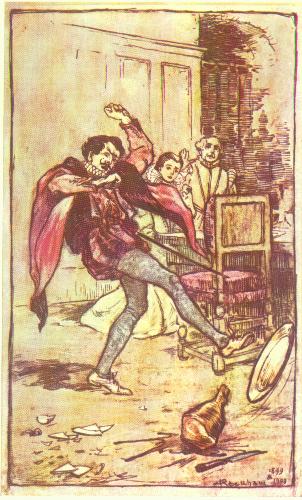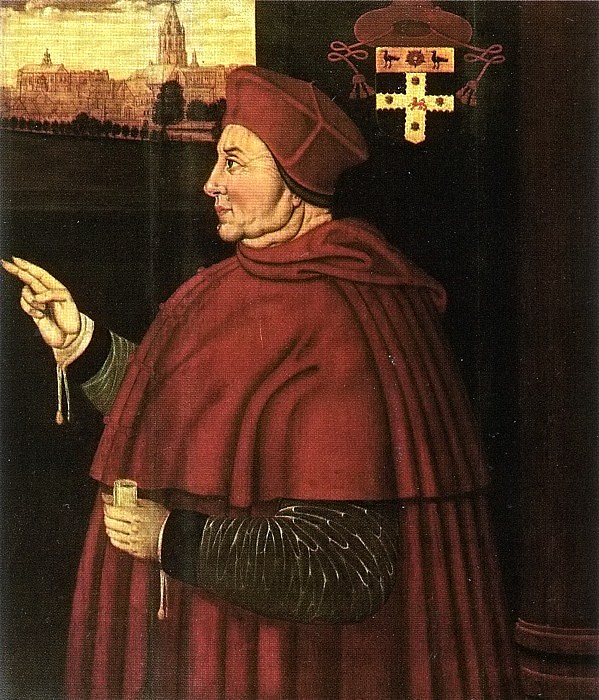 I have to start out by making it clear, it was the BBC production of the three Henry VI Plays which got me hooked on the History plays - yes I knew Henry V and Henry IV Part 1, I'd endured Richard the Second and seen Larry hamming up the Third for all it was worth. But it was the BBC that made me register 'History Play' as something different. And they still keep up the good work: How well did Shakespeare know history?
I have to start out by making it clear, it was the BBC production of the three Henry VI Plays which got me hooked on the History plays - yes I knew Henry V and Henry IV Part 1, I'd endured Richard the Second and seen Larry hamming up the Third for all it was worth. But it was the BBC that made me register 'History Play' as something different. And they still keep up the good work: How well did Shakespeare know history?The BBC though took a path I am not taking - they did the three Henry VI plays in historical chronological order, I am looking at them in a reconstructed order of their writing.
 The three plays as a sequence I will leave until later on - possibly when I have finished the three Henry VIs, possibly when I look at the whole of the history plays.
The three plays as a sequence I will leave until later on - possibly when I have finished the three Henry VIs, possibly when I look at the whole of the history plays.Here I want to take a look at what the opening of 'The First Part of the Contention ...' was like - taking into consideration what I posted last and those rather irritating Olympics which have me glued to the TV even as I write.
I've blogged on the opening ceremony of the Olympics over on Thoughts from the Edge and won't tread the same ground - I will say though that both Shakespeare and the BBC open this exploration of a national history in the same spirit - big loud and colourful.
Which is precisely what the BBC production gave us - well, not so big (as befits a stage play) but certainly loud and colourful.
Trumpets blared, drums rolled, crowds cheered and in marched the key agents to the play which will follow - each preceded by a flag, each marching in and nodding to the king, who we don't see as the camera is peeping over his shoulder, and each taking up his appointed place.
The colours are all there - mainly in the costume but also in the painted wood of the 'bear-pit' the production is placed in, and in all the fluttering flags and shiny clothes.
Then, with all the 'athletes' in place, in comes the 'torch' on the hand of an upstart - rose-petal like discs of coloured paper fluttering around Margaret and Suffolk just as after a wedding - but this is a bride who has not yet married although a 'troth' has been plighted.
This has the essence of an Olympic ceremony and is as much an attempt to claim national identity and significance as any such splendours played out nowadays.
You get a 'feel good factor' - there is pride and there is hope.
Suffolk, speaking as only the politician in front of a national audience can, declares, "... in sight of England and her lordly peers ..." to have fulfilled all that was requested of him.
And you just know, in the original production - that sight of England was accompanied by a gesture to the assembled theatre - already dragged in emotionally by the music and flag waving.
You didn't quite get that from the TV. Although the voice made clear its importance - we are watching you - the world is watching you; Cue camera and roll.
Henry, weak of voice, pale of colour (although with lively eyes) responds.
He thanks Suffolk, then kisses his bride - and, if you are expecting warmth and love, excitement and passion, forget it. In a triumphal theatrical moment, Henry kisses the hand of Margaret. She had moved to kiss cheeks or lips and is visibly surprised.
This is back to the question of the marriage relationship - Henry, as a devout man, as a Catholic King esteems the Platonic above the lustful. Whatever, union is about to be sanctified, it is not going to be carnal. Friendship before equality? And, after the three kisses of 'The Taming of the Shrew' what clearer indication could you have of all not being well?
 There is a disappointment - it is as if you were to discover the fireworks opening the Beijing Olympics were a computer trick, or the cute girl
There is a disappointment - it is as if you were to discover the fireworks opening the Beijing Olympics were a computer trick, or the cute girl  singing the Chinese national anthem was miming to someone else's voice.
singing the Chinese national anthem was miming to someone else's voice.The difference, of course, being we do not discover 'til after the event, the slight of hand in China - here the BBC give us, in the middle of the ceremony, disappointment and unease.
And they haven't finished with us yet ...
Technorati Tags: Shakespeare, Henry VI, BBC Shakespeare, Olympics


 We have here the '
We have here the '










